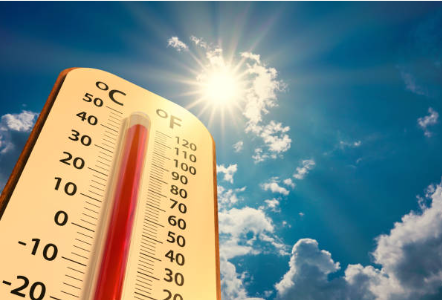Why 2024 is the Hottest Year: Unprecedented Climate Changes
The year 2024 has officially marked itself as the hottest year on record, breaking previous temperature highs and setting new alarming trends in global climate change. As we dive into the reasons behind this phenomenon, it’s crucial to understand the multifaceted causes and far-reaching impacts of this record-breaking heat.
Rising Global Temperatures: An Overview
In 2024, the average global temperature soared to unprecedented levels. This spike is not just a seasonal anomaly but a clear indicator of an accelerating trend in global warming. Scientists have pointed to several key factors driving these extreme temperatures.
The Role of Greenhouse Gases
The primary culprit behind the record heat in 2024 is the increase in greenhouse gases. Carbon dioxide (CO2) levels, in particular, have reached new heights due to ongoing fossil fuel consumption, deforestation, and industrial activities. Methane (CH4) and nitrous oxide (N2O) emissions also play significant roles, contributing to the greenhouse effect that traps heat in the Earth’s atmosphere.
Ocean Temperatures and El Niño
Another significant factor is the rise in ocean temperatures. The oceans absorb about 90% of the excess heat generated by greenhouse gases. In 2024, ocean surface temperatures reached record levels, exacerbated by an intense El Niño event. El Niño, a periodic climate pattern characterized by the warming of sea surface temperatures in the central and eastern Pacific Ocean, has a profound impact on global weather patterns, pushing temperatures even higher.
Deforestation and Land Use Changes
Human activities, particularly deforestation and changes in land use, have further amplified the heat. Forests act as carbon sinks, absorbing CO2 from the atmosphere. The rapid rate of deforestation, especially in tropical regions like the Amazon, has reduced the Earth’s capacity to sequester carbon, leading to higher atmospheric CO2 levels and thus higher temperatures.
Urban Heat Islands
The urban heat island effect, where urban areas experience higher temperatures than their rural surroundings, has also contributed to the overall increase in temperatures. This is due to the concentration of buildings, roads, and other infrastructure that absorb and retain heat, coupled with a lack of vegetation.
Impacts on the Environment and Society
The record heat of 2024 has had widespread impacts on the environment and human society. Prolonged heatwaves have led to increased mortality rates, particularly among vulnerable populations such as the elderly and those with preexisting health conditions. The agricultural sector has also suffered, with crop yields declining due to heat stress and drought conditions.
Wildlife and Ecosystems
Wildlife and ecosystems are experiencing severe stress due to the temperature rise. Species that cannot migrate or adapt quickly enough face the risk of extinction. Coral reefs, already under threat from ocean acidification and bleaching events, are further imperiled by the warmer ocean temperatures.
Mitigation and Adaptation Strategies
Addressing the challenges posed by the record heat in 2024 requires comprehensive mitigation and adaptation strategies. Reducing greenhouse gas emissions is paramount. This can be achieved through transitioning to renewable energy sources, enhancing energy efficiency, and protecting and restoring forests.
Adaptation strategies are equally important. These include developing heat-resistant crop varieties, improving water management systems to cope with drought conditions, and designing urban areas to minimize the heat island effect.
Conclusion: A Call to Action
The unprecedented heat of 2024 serves as a stark reminder of the urgent need to address climate change. It is a clarion call for immediate and sustained action at both the global and local levels. Governments, businesses, and individuals must work together to implement effective solutions to mitigate the impact of climate change and build resilience against its inevitable consequences.
In conclusion, 2024 is the hottest year on record, driven by a combination of increased greenhouse gas emissions, rising ocean temperatures, deforestation, and urban heat islands. The impacts on the environment and society are profound, necessitating urgent and coordinated action to combat and adapt to these changes. Let this year be a turning point in our collective efforts to secure a sustainable future for generations to come. 2024 hottest year

